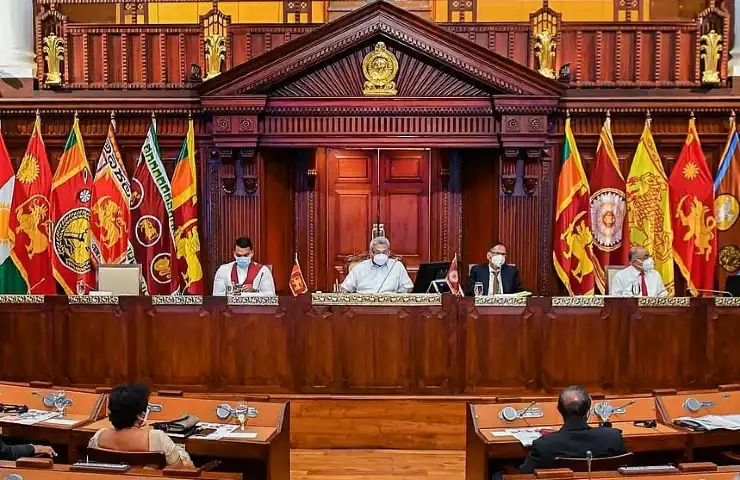In fast happening developments in Sri Lanka, President Gotabaya Rajapaksa invited opposition parties to "work together" to pull out the beleaguered country from sliding further into chaos. Rajapaksa offered ministerial berths to political parties to come together and find solutions to the country's worsening economic situation.
Besides the economic crisis and the subsequent social turmoil, the island nation is in the grip of political paralysis as the entire cabinet of ministers handed over their resignation letters to Prime Minister Mahinda Rajapaksa–brother of President Gotabaya Rajapaksa.
The President has been under widespread criticism over his decision to impose a state of emergency and also curfew in view of planned protests. A day earlier, Sri Lanka witnessed major protests over shortage of food and fuel as well as rising prices. In sweltering heat, the country is witnessing power cuts for as long as 13 hours.
The mood in the cash-starved country has turned against the ruling Rajapaksa family. People have been shouting personal slogans against the president, blaming him and his family-members for bringing the island nation to a ruinous state.
People as well as students, however, came out on the streets despite a 36-hour curfew that began on Saturday night. Many were pushed back by the police using water cannons. The government was also blamed for the downing of the social media platforms, even though Namal Rajapaksa–the Cabinet Minister for Youth and Sports, and also the Prime Minister's son, criticised the ban on social media.
On Monday, the stock exchange was halted after stocks plummeted by nearly 10 per cent amid severe power cuts.
Meanwhile, Sri Lankan expatriates in Australia and New Zealand held demonstrations against their government, urging Rajapaksa to quit. The expats also threatened to not remit foreign exchange if the government did not allow for protests back home, reported news website The Island on Monday.
The Island reported that, on Monday, the Human Rights Commission of Sri Lanka (HRCSL) too criticised the government for imposing the state of emergency and the 36-hour curfew. The HRCSL felt that the government should focus on addressing public grievances instead of resorting to security measures.
Read More:
Sri Lankan refugees flee to India as inflation, food and water shortage bite




















